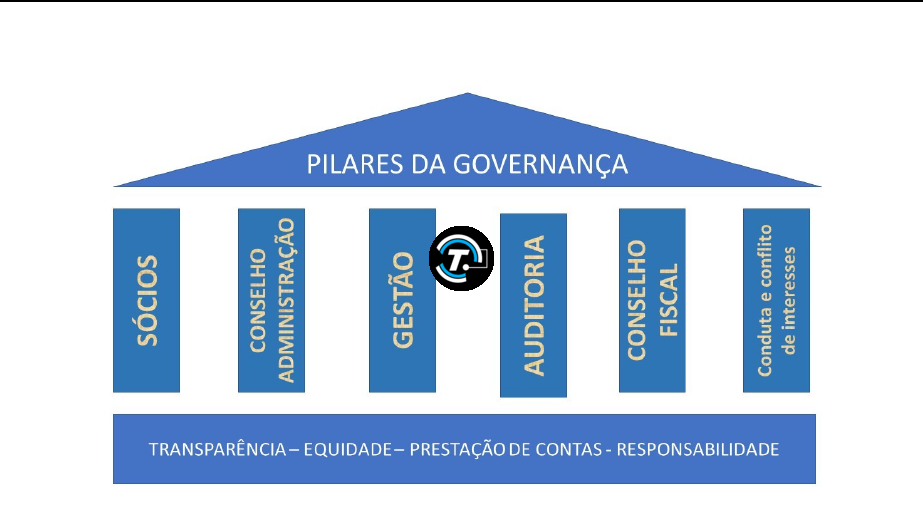Governacia is a word that sounds big, but it’s actually quite simple once you understand it. It’s all about how things are managed, rules are made, and how decisions are taken for people, places, and even schools or cities. In this article, we’ll help you understand what governacia means, why it matters, and how it affects your everyday life. Whether you’re a student, a parent, or just curious, this guide will explain governacia in a way that’s easy to follow and useful.
What Does Governacia Mean?
Governacia is a way of talking about how things are run, managed, and organized. The word “governacia” comes from “governance,” which is all about how decisions are made and who makes them. It’s like when your school has rules, or your town has a mayor who helps make decisions for everyone. Governacia includes the rules, the people who make them, and how those rules are used fairly.
Imagine you’re playing a game. You need someone to explain the rules and make sure everyone plays fairly. That person is like the governacia of the game. They don’t play for you, but they help everything run smoothly so no one cheats or gets hurt. That’s what governacia does in real life, too—it keeps things fair, organized, and helpful for everyone.
Why Is Governacia Important?
Governacia helps make sure things work the way they should. Without it, there could be confusion, unfairness, or even chaos. Think about what would happen if your classroom had no rules. People might talk over each other, no one would listen, and learning would be hard. That’s why we need good governacia.
Good governacia helps us:
- Make fair decisions
- Listen to everyone’s opinions
- Solve problems peacefully
- Use resources wisely (like money, time, and energy)
- Protect everyone’s rights
Governacia also builds trust. When people know things are fair, they feel safe. They’re more likely to follow the rules and help others. This is why governacia is such a big deal in schools, towns, and even whole countries.
Where Do We See Governacia?
Governacia is not just something for presidents or politicians. It happens around us every day. You can find it at home, in school, in your neighborhood, and across the whole country.

At Home and School
At home, parents often set rules like bedtime or screen time. They might ask for your opinion or make decisions that keep the family safe and happy. That’s governacia.
In school, teachers and principals help make rules to keep students safe and focused. There are also student councils, where students share their ideas and vote on activities. That’s also a form of governacia. It helps students feel like their voices matter.
In Your Town or City
In towns and cities, we have mayors, councils, and local leaders. They help plan roads, parks, safety, schools, and more. They ask the people for feedback and make decisions based on what’s best for everyone. This is local governacia in action. It’s how cities stay clean, organized, and safe.
In the Whole Country
In the United States, governacia is done by the government—like the President, Congress, and judges. They work to make laws, keep peace, and protect rights. There are also elections where people vote to choose leaders. This is a big part of governacia. When people vote, they help guide how the country is run.
How Does Governacia Work?
Governacia works through systems. These systems involve rules, people, and responsibilities. Let’s break it down.
First, there are rules and laws. These are written down so everyone knows what is expected. Then, there are people who help create and follow these rules—like teachers, police officers, city leaders, or even students in school government.
There’s also communication. Good governacia means listening to others, understanding different ideas, and making choices that help the most people. When people work together and follow clear systems, governacia works well. When people only think about themselves or ignore the rules, governacia can break down.
Types of Governacia
Governacia can look different in different places. There are several types, and each has a special role.
- Political Governacia – This is about how a country is run. It includes leaders, laws, and voting.
- Corporate Governacia – This happens in companies. It’s about making decisions that are fair for workers, customers, and owners.
- Environmental Governacia – This helps protect nature. Leaders decide how to care for water, forests, and air.
- Social Governacia – This is about fairness in communities. It helps make sure everyone has the same rights and opportunities.
Each type of governacia helps us live better, safer lives in different ways.
Local Governacia
Local governacia is the kind you see closest to home. It’s the decisions made by people in your neighborhood, town, or school.

Local governacia means solving problems like:
- Where to build new schools
- How to keep parks clean
- What time curfew should be
- How to help people in need
When people in the community work with leaders to solve problems, that’s strong local governacia. It’s important because it affects your daily life more than big national decisions sometimes do.
School Governacia
Schools are a great example of governacia. Principals, teachers, and sometimes students work together to decide things like:
- Class schedules
- Rules about behavior
- Special events
- Safety drills
Sometimes there are student councils, where kids can share ideas and vote. That’s a form of democratic governacia. Everyone’s voice matters.
Good vs. Bad Governacia
Not all governacia is the same. Good governacia is fair, clear, and helps everyone. Bad governacia is unfair, confusing, and only helps a few people.
Good governacia:
- Listens to everyone
- Makes decisions that are fair
- Is honest and open
- Solves problems
- Builds trust
Bad governacia:
- Ignores people’s opinions
- Helps only a few people
- Hides information
- Causes confusion or conflict
- Breaks trust
We all want to be part of good governacia because it makes life better and fairer for everyone.
What Makes Governacia Good?
There are a few key things that help governacia be good:
- Transparency – This means being open. People need to know how decisions are made.
- Accountability – Leaders must take responsibility for their actions.
- Participation – Everyone should have a chance to share their ideas.
- Fairness – Rules must be the same for everyone.
- Responsiveness – Leaders should listen and respond to people’s needs.
When these things are strong, governacia works well and helps the whole community grow.
Who Helps with Governacia?
Many people help with governacia—not just presidents or mayors. Parents, teachers, community leaders, police officers, and even students all play a role. In fact, anyone who helps make fair decisions and follows good rules is helping with governacia.
Even voting in elections or sharing your ideas in a class meeting is part of governacia. It’s a team effort. Everyone matters.
The Bottom Line
Governacia might sound like a big, fancy word, but it’s really about something simple: making fair decisions that help people live better together. It happens in schools, homes, towns, and across whole countries. It works best when people listen, care, and work together.
Whether you’re choosing what game to play, making a rule at home, or voting for a leader, you’re part of governacia. That’s why it matters—because every voice and every decision counts. Understanding governacia helps us become better citizens, kinder neighbors, and stronger communities.


